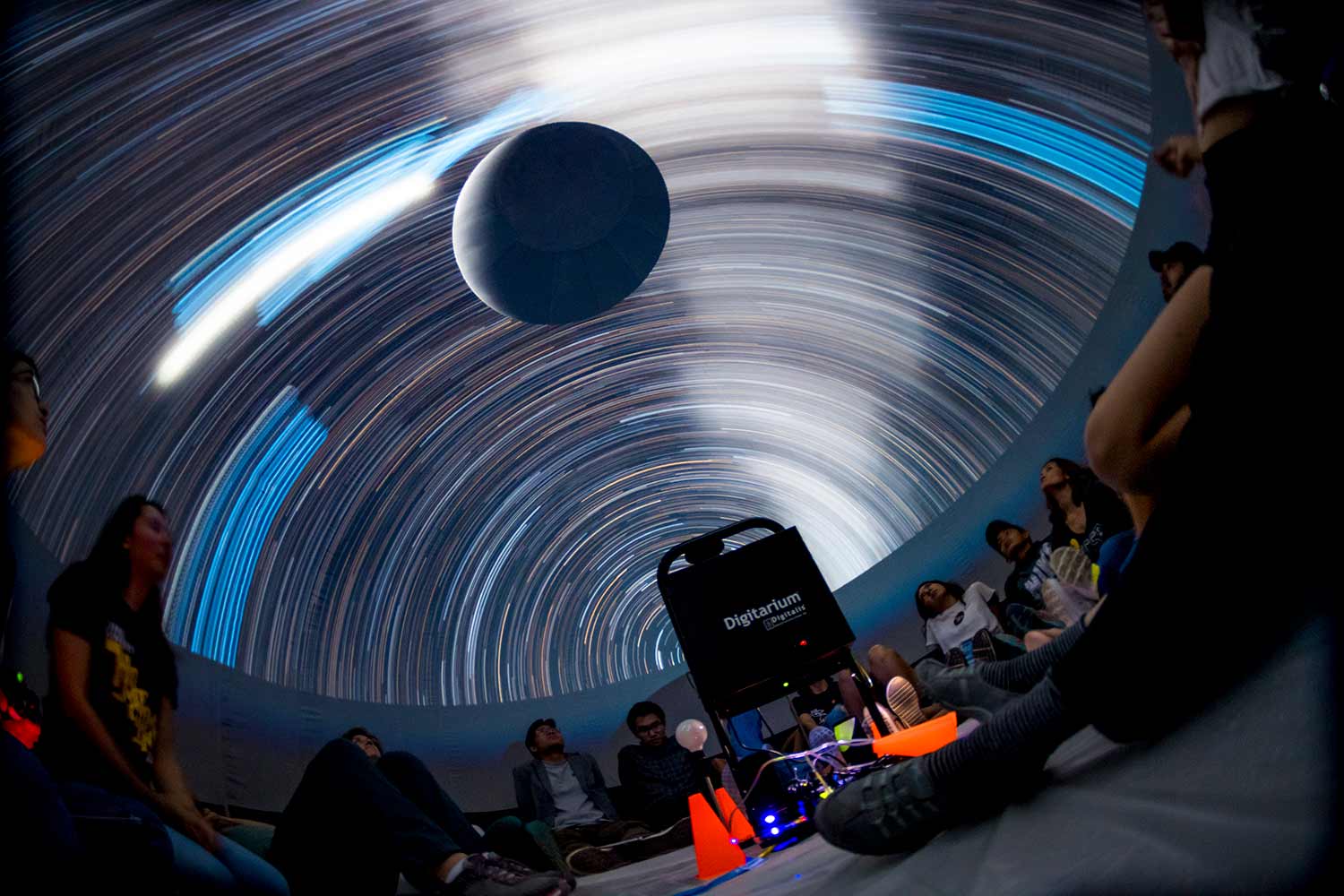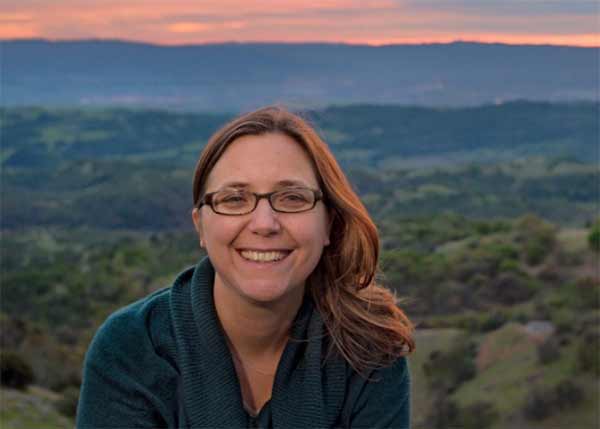
By:
- Cynthia Dillon
Published Date
By:
- Cynthia Dillon
Share This:

Members of the public experience UC San Diego's first portable planetarium hosted by Professor Shelley Wright and graduate students Maren Cosens and Lindsay Lowry. Photo by Erik Jepsen/UC San Diego
Astrophysicist Enlightens Campus, Community with Portable Planetarium
As a scientist who observes distant galaxies and black holes both far and near, Shelley Wright noticed an important gap in space—right on the grounds of the University of California San Diego. A proponent of teaching and training students through the observation of the night sky, Wright realized that it was time the university featured its own portable planetarium.
An enclosed structure in which images of stars, planets and constellations are projected onto the surfaces of a dome, planetariums are traditional resources for education and entertainment. As an observational and experimental astrophysicist with a long view, Wright envisioned a portable version which could be shared on campus and beyond. That vision materialized recently when UC San Diego opened its first portable planetarium to 100 members of the public, including “kids” of all ages.
“Studies show that people understand astronomy better if they can visualize it,” explained Wright. “A planetarium is a fantastic visualization tool for education and outreach.”
She also explained that a planetarium can transport observers inside to any location on earth, where they can watch and learn about that area’s particular night sky and all it holds. Modern astronomers and astrophysicists like Wright have access to state-of-the-art telescopes, like the W. M. Keck Observatory, in remote locations like Mauna Kea, Hawaii, where city light pollution is diminished and dark skies afford optimal viewing. Many communities, even those in San Diego, however, lack easy access to observing dark skies.
“I’m really excited for the potential of this portable planetarium, both for UCSD's undergraduate educational program and broad outreach in our San Diego community,” said Wright, a faculty researcher in the Department of Physics and at the Center for Astrophysics and Space Sciences. “I’m especially excited about being able to take this to communities where it is difficult for people to travel to see the night sky.”

Astrophysicist and UC San Diego faculty member Shelley Wright. Photo courtesy of https://saw.physics.ucsd.edu
At the university, Wright will use the planetarium, funded by the Division of Physical Sciences, for training graduate students and for introductory astronomy classes. Two graduate student coordinators—Lindsay Lowry and Maren Cosens—will manage the transportation and presentation of the planetarium within greater San Diego. They received education outreach training, which they applied to the recent introductory event.
“This portable planetarium provides a really fun and accessible way to share our knowledge and love for astronomy with the public,” said Cosens. “Being able to show the real night sky and ‘fly’ up to the objects we're talking about makes it so much more tangible and a fantastic way to share what we study here at UC San Diego.”
Lowry shared that she, herself, enjoyed learning more about the night sky and also the opportunity to share the experience with so many people during the recent event.
“I think that this portable planetarium will be an incredible resource for the school, and I am so happy for the opportunity to be involved,” she said.
According to Wright, the students will begin taking the portable night sky to the San Diego community sometime in early 2019.
“I think it is so awesome that we can bring the field trip to local schools,” said Wright. “We’ll also be making the night sky accessible to the students of UC San Diego, who will be able to better understand it.”
For more information about the UC San Diego Portable Planetarium program please visit the Planetarium website or contact: planetarium@physics.ucsd.edu.
UC San Diego is transforming California and a diverse global society by educating, by generating and disseminating knowledge and creative works, and by engaging in public service.
Share This:
You May Also Like
Stay in the Know
Keep up with all the latest from UC San Diego. Subscribe to the newsletter today.


